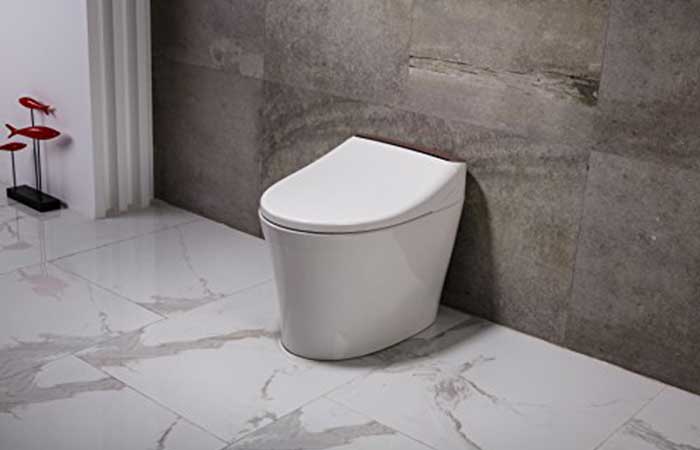Choosing the right toilet for your bathroom is essential. In this article, we will compare tankless and conventional toilets to help you make an informed decision. With advancements in toilet technology, it's necessary to understand the features and advantages of each option.
What Are Tankless Toilets?
Tankless toilets, also known as wall-hung toilets, are innovative bathroom fixtures without a traditional tank to store water. They use a direct water supply and operate by flushing waste through a powerful flushing mechanism. Tankless toilets are renowned for their space-saving design, making them ideal for smaller bathrooms. Additionally, they contribute to water conservation efforts and are considered eco-friendly.
Exploring Conventional Toilets
Conventional toilets, on the other hand, are the traditional and widely used option in most households. These toilets feature a tank that stores water for flushing. Conventional toilets come in various styles and designs, including single-piece and two-piece models. They have stood the test of time and are known for their reliability, ease of installation, and affordability. The market offers various conventional toilets to suit different preferences and budgets.
Pros and Cons of Tankless Toilets
Tankless toilets offer several advantages worth considering. They use water more efficiently, reducing water consumption and lowering utility bills. Their sleek design and space-saving nature make them an excellent choice for modern bathrooms. However, tankless toilets generally have higher initial costs and may require professional installation due to their unique plumbing requirements.
Benefits of Conventional Toilets
Conventional toilets continue to be a popular choice for many homeowners. They are reliable, time-tested fixtures compatible with existing plumbing systems, making replacement or installation more straightforward. Conventional toilets are typically more affordable than tankless ones, making them cost-effective for budget-conscious individuals. They are also known for their durability and widespread availability.
Choosing the Right Toilet for Your Needs
When deciding between tankless and conventional toilets, consider several factors:
- Assess your budget and determine how much you will spend on a toilet.
- Evaluate the available space in your bathroom and whether a tankless option would be more suitable.
- Consider your personal preferences and eco-consciousness.
Consulting a professional plumber or bathroom designer can also provide valuable guidance in making the right choice.
Frequently Asked Questions
1. What is the main difference between tankless and conventional toilets?
Tankless toilets, also known as flushometer toilets, do not have a tank to store water. Instead, they rely on a direct water supply to flush waste. Conventional toilets, on the other hand, have a tank that stores water, which is released upon flushing.
2. Which type of toilet is more water-efficient?
Tankless toilets are generally more water-efficient than conventional toilets because they allow for precise control over the amount of water used per flush. Conventional toilets may use more water because the tank typically holds a predetermined amount of water for each flush.
3. Are tankless toilets more expensive to install than conventional toilets?
Yes, tankless toilets often have a higher initial cost compared to conventional toilets. They may require additional plumbing work and specialized installation, which can increase the overall installation cost.
4. Do tankless toilets require more maintenance than conventional toilets?
Tankless toilets may require less maintenance than conventional toilets since they have fewer moving parts and no tank to potentially develop leaks or other issues. However, they may still require periodic maintenance to ensure proper functioning.
5. Are tankless toilets suitable for residential use, or are they primarily used in commercial settings?
While tankless toilets are commonly found in commercial settings due to their water efficiency and durability, they are also suitable for residential use. Some homeowners opt for tankless toilets to save water and space in their bathrooms.
Conclusion
You can confidently choose between a tankless and a conventional toilet by considering the pros and cons, benefits, and individual needs. Selecting the right toilet will enhance your bathroom experience and meet your specific requirements.
Remember, the decision ultimately depends on your personal preferences, budget, and the unique characteristics of your bathroom.


